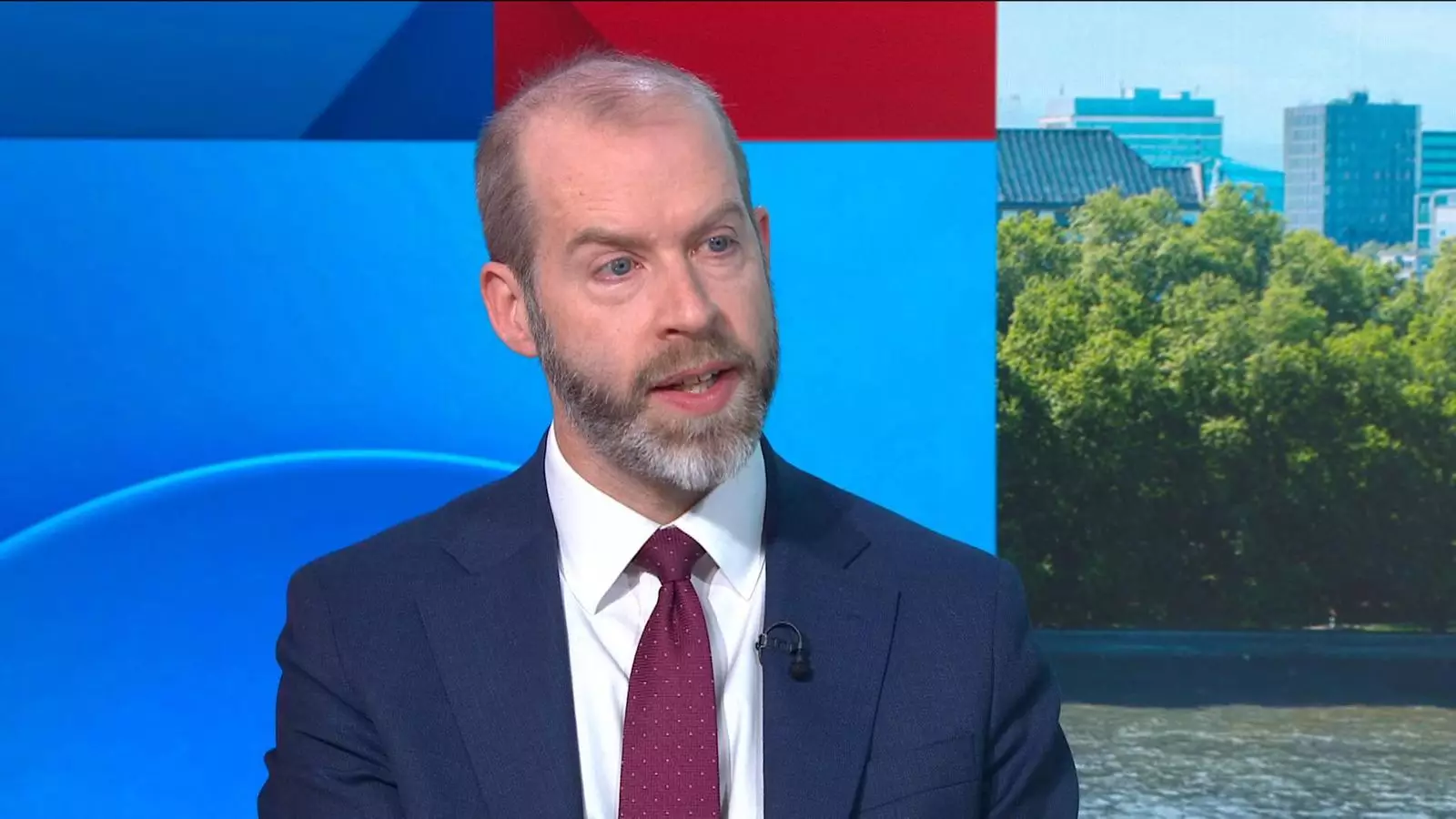The recent turmoil surrounding British Steel underscores a distressing trend in how the United Kingdom engages with foreign investments, particularly from nations like China. The business secretary’s announcement that he would refrain from allowing another Chinese company into the “sensitive” steel sector is both alarming and revealing. The British steel industry is not just another sector; it is a cornerstone of national infrastructure and identity. Yet, the reactive measures taken by the government, including emergency legislation to keep the steel plant operational, highlight a grim reality: the fragility of British manufacturing.
British Steel, under the ownership of the Chinese company Jingye, has faced severe operational challenges, leading to the government stepping in to avert disaster. The urgency with which the Steel Industry (Special Measures) Bill was pushed through Parliament is indicative of a deeper issue—the government’s lax oversight and minimal foresight. By allowing such a significant asset to fall under foreign control without sufficient safeguards, the previous administration, led by Boris Johnson, neglected fundamental principles of economic sovereignty.
This situation raises crucial questions: How does a nation reconcile foreign investment with national interest? What systems should be in place to protect strategic industries like steel from the corrosive effects of irresponsible ownership?
Striking the Balance: Foreign Involvement and National Security
In his assessment, Jonathan Reynolds articulated a growing unease regarding Chinese involvement in critical sectors. Steel manufacturing is not merely an economic activity; it holds implications for national security and self-sufficiency. The notion of relying on foreign powers for essential materials is fraught with risks, especially in times of geopolitical tensions. By allowing Jingye to take control of British Steel, the government unwittingly compromised the UK’s strategic position in a key industry while making taxpayers responsible for the consequences of such a reckless decision.
Reynolds’s assertion that steel is a “very sensitive area” aligns with a broader concern over economic vulnerabilities linked to foreign ownership. The recent crisis, brought on by Jingye’s sudden cancellation of orders, serves as a wake-up call. The government suddenly found itself scrambling to avert disaster, showcasing the inherent dangers of allowing foreign entities to hold sway over essential industries. It is clear that there must be more rigorous scrutiny and regulatory measures in place to ensure that investments do not compromise national interests.
Public Ownership: The Inevitable Path Forward
The potential move toward public ownership, as suggested by Reynolds, is fraught with complications but may ultimately emerge as a necessity. The crisis illustrates that, in situations where private ownership falters, the state may have no choice but to intervene. While public ownership might not be the optimal solution for every industry, in the case of British Steel, it could provide a stabilizing hand during a tumultuous period.
However, this shift must be accompanied by a commitment to effective management and innovation within the sector. The government cannot simply take over and maintain the status quo; it must invest in modernizing the steel industry and aligning it with new technologies and sustainable practices. The emphasis on securing a private-sector partner is understandable, but it must proceed with caution. Corporate interests should never overshadow the need to protect the public good, particularly in sensitive sectors like steel.
The Political Consequences and the Future Outlook
The fiery critique from Andrew Griffith, the shadow business secretary, highlights a divisive political landscape surrounding this issue. The claim that the government’s emergency bill represents a “botched nationalisation” is a striking jab at the accountability of the current administration. It raises significant questions regarding the efficacy and prudence of ongoing policies concerning foreign investment in British industry.
As voters observe the fallout from this debacle, it becomes imperative that public discourse pivots towards accountability and reform. The steel industry crisis not only reflects mismanagement at high levels but serves as a crucial lesson in the importance of safeguarding national interests in an increasingly interconnected world. The question is no longer about who holds the reins of British Steel but about how the UK can reinvent its approach to ensure a resilient and independent manufacturing base that serves the needs of its people first and foremost.


Leave a Reply